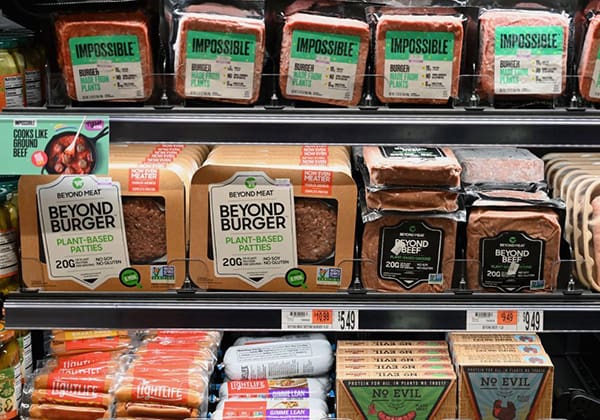Dairy and meat substitutes aren’t critical to the vegan diet but they will be critical in reversing our meat consumption. As we progress further toward a world beyond 2°C, we need to reevaluate our consumption habits with a particular emphasis on meat. As the production of animal products such as dairy and eggs are tied to the rearing of animals, a decrease in demand is also critical. The Australian diet is one of the most carbon-intensive in the world owing to our near unrivalled appetite for meat. Other countries that share the obsession include the USA, New Zealand, Argentina, Israel, Uruguay, and Kuwait. It’s difficult to pin the reasons behind the elevated demand between such different nations but I argue that culture holds the key. It is for this reason that I am a huge advocate for dairy and meat substitutes.
One of the highlights of any overseas trip is indulging in the cuisine of another nation. The food people eat tells the story of who they are and where they’ve been. Food historians reveal to us how a history of changing material conditions is embedded in the food that we eat. In the USA and Australia, meat consumption increased as the arriving colonists found vast swathes of fertile land making animal rearing affordable. While I don’t argue that the stories embedded in our food are good ones, they leave a legacy. People will not be quick to abandon their heritage, no matter how bloody. Our food preferences are part of our identity, our personal history and our cultural history. Cooking is a form of communion and dairy/meat substitutes allow us to commune albeit with a reduced carbon footprint. I don’t have to give up grandma’s Bolognese.
According to the Organisation for Economic Co-operation and Development (OECD), meat consumption has grown by approximately 58% in the last 20 years. Interestingly, 54% of this increase has scaled with population growth and the remainder an intensification of meat consumption (kg/capita). Changes in dairy product demand are not uniform across the offerings (e.g. more want cheese but less want milk). Nonetheless, with the population set to cap at approximately 11 billion, there must be an effort to reduce the per capita consumption of animal products. Substitutes are far from the complete answer. Despite impressive growth in the industry, meeting global animal product demand is a tall order. Instead, we need to celebrate our vegetables and legumes but for the things we can’t let go of, substitutes may fill the gap.
True to name, substitutes may help people lower their consumption by substituting for an animal product without making a vegan or vegetarian transition. Anyone who has spent too long looking at burger menus may have noticed that Grill’d sells plant-based burgers with bacon. The approach doesn’t follow an all-or-nothing dogma, instead encouraging substitution where possible. These burgers are targeting the omnivorous amongst us. Now, Grill’d isn’t exactly a bastion of virtue but they highlight a viable use for the substitute product. I’ll still cringe whenever I hear someone say “wow it tastes just like meat,” but this revelation informs us that we don’t need to revert to old habits to enjoy our most treasured meals. I also wouldn’t call burger eating elite or luxurious.
If nothing else, capitalism knows how to find and build a market. You may argue that it plays on our impulsiveness (it does), that it sells images as much as products (it does), or that it’s downright responsible for the climate catastrophe we find ourselves in (it is). Yet, a product born in a market society isn’t inherently undesirable. Substitutes are out there to directly compete with animal products but they’re in their infancy. The animal-consuming market vastly outstrips the vegan in both net wealth and size making it a far more lucrative one. Some companies may cater to the high-flying urban vegan, but the common man has money to spend too. The cheaper materials inputs and economies of scale achievable with substitutes will cause prices to fall. Dairy and meat substitutes aren’t there to make veganism inaccessible. They’re there to reduce the carbon footprint of the schnitty-craving vegan and the climate-conscious burger fan alike.





